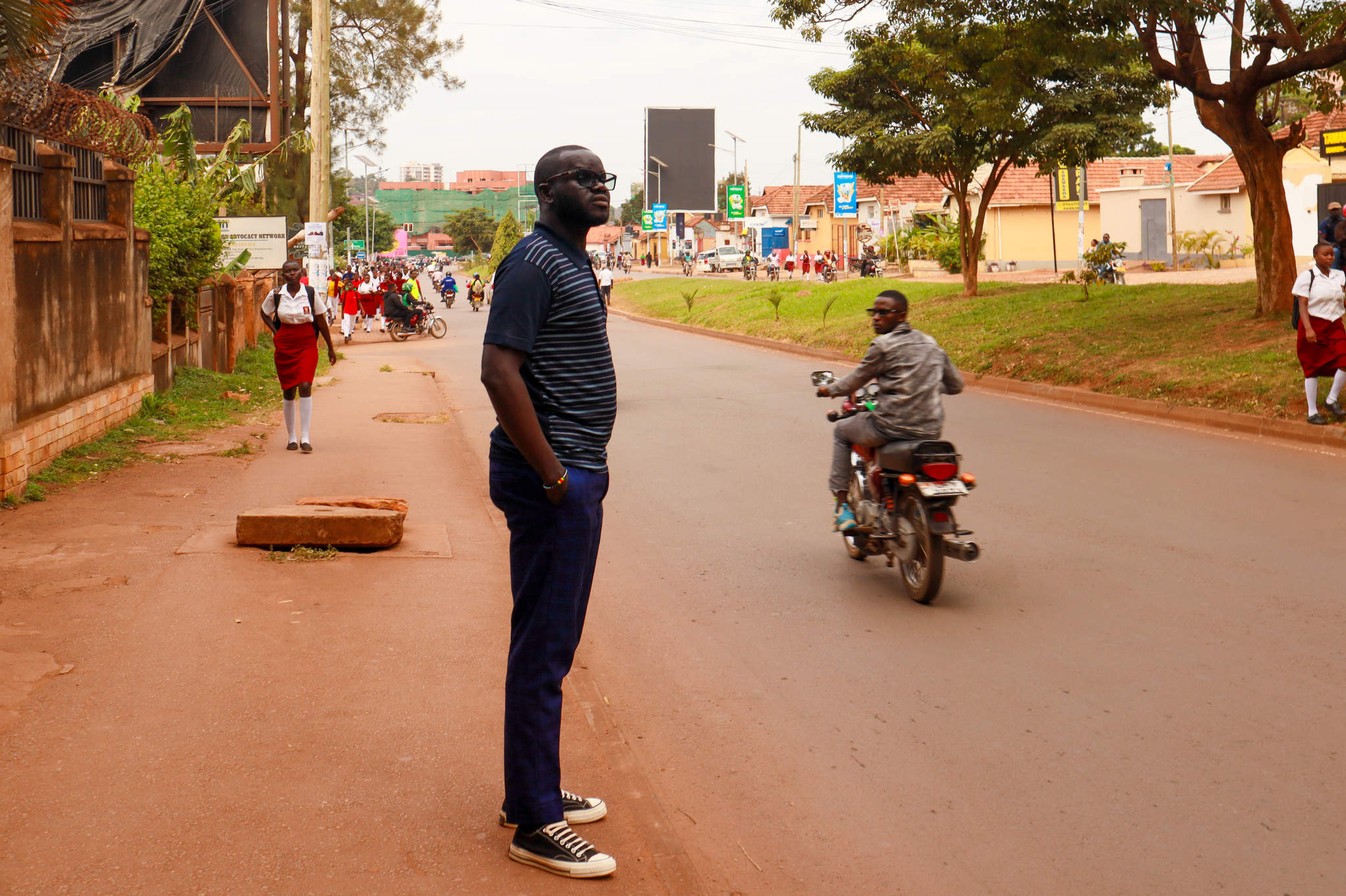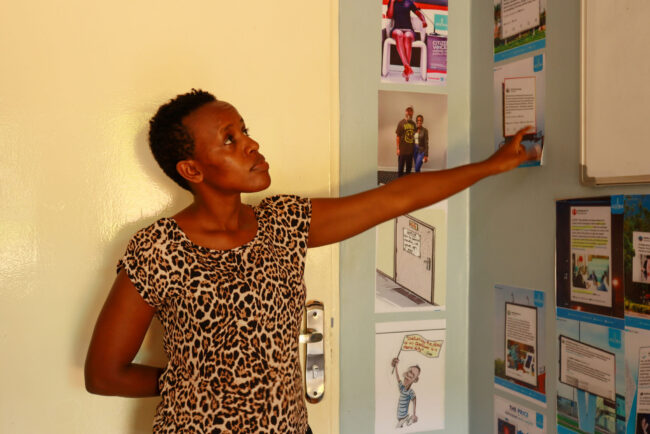KAMPALA, UGANDA — Agather Atuhaire, a journalist and human rights activist, traveled to Tanzania in May to observe the trial of Tundu Lissu, a Tanzanian opposition leader charged by the government with treason.
But a day after she arrived, she says men who identified themselves as state agents abducted her from her hotel room. They beat her for days until her feet swelled, she says, and then four days later they dumped her near the Tanzania-Uganda border.
Kenyan activists including presidential aspirant Boniface Mwangi, who’d also traveled to observe the trial, reported being detained, tortured and deported as well.
Tanzanian President Samia Suluhu Hassan, who critics say has cracked down on opposition, defended the expulsions, saying that foreign observers at the trial were interfering in the country’s affairs.
But critics say that the abductions and deportations not only violate several protections — including the Tanzanian Constitution and the East African Community Treaty allowing freedom of movement — but display signs of coordinated efforts by governments in the region to stifle dissent. In a press interview, Martha Karua, a prominent Kenyan politician and former presidential aspirant who also was deported while trying to attend the hearing, said that it demonstrated regional “collaboration in oppressing citizens.”
For Atuhaire, who has previously faced threats for speaking out against the Ugandan government, what signaled a coordination between governments was the silence of her own. “[The Ugandan government] has never said anything about my detention or torture when I came back, and yet it says it cares about its people,” Atuhaire says.
Global Press Journal contacted Uganda’s Ministry of Foreign Affairs for comment but got no response.
Governments in the region have faced criticism in the past for transnational repression — that is, state actions meant to silence dissent of its own citizens abroad. According to Human Rights Watch, this takes various shapes and sometimes leads to unlawful removal of a person from another country, at times with the host country’s cooperation.
This past January, Tanzanian activist Maria Sarungi Tsehai, who’s been critical of her country’s government, was abducted across the border in Nairobi. Rights groups including Amnesty International linked the incident to the Tanzanian government.
And in November 2024, Ugandan opposition figure and former presidential candidate Kizza Besigye was arrested at his hotel room in Nairobi along with other members of his opposition party, the Forum for Democratic Change. Besigye later reappeared in a military court in Uganda. He was charged with possession of firearms and other offenses.
In an interview with the media following the arrests, Chris Baryomunsi, Uganda’s Information and Communication Technology and National Guidance minister, said that Kenya assisted in the arrest. At first, Kenyan authorities denied involvement, then later admitted it.
A 2024 report by Human Rights Watch has also documented other cases across the eight partner states that make up the East African Community. In the report, they highlight the suspected killing of a Rwandan citizen while in Uganda and the possible involvement of the Rwandan government. Their report also highlights the abduction in Nairobi of two South Sudanese critics of their government with the alleged involvement of the South Sudan National Security Service.
A long history
In Uganda, this kind of cross-border repression has a long history, dating back to the country’s post-independence era of the 1960s and ’70s, says Rogers Barigayomwe, a professor of politics and law at Kampala International University. He says that during that period, critics of former Presidents Milton Obote and Idi Amin often fled to Kenya, believing it was safe.
“But that wasn’t always the case, as some were abducted in Kenya by Amin’s security forces,” Barigayomwe says.
In a report on transnational repression by Freedom House, a Washington, D.C.-based nonprofit, the Ugandan government was listed as a leading perpetrator in 2024, alongside the governments of Cambodia, Russia and China.
The report, which is based on data collected from 2014 to 2024, documented 1,219 direct physical incidents of transnational repression committed by 48 governments.
Among these were 73 incidents in 2024 where three or more people were targeted at once. The largest involved 36 Ugandan activists who were detained in Kenya by Kenyan authorities and forcibly returned to Uganda where they were charged with “receiving terrorist training” for attending a civil society workshop, according to the Freedom House report.



Fear of influence
The coordination between governments to suppress dissent is especially worrying as countries in the region like Uganda and Tanzania head into elections, says Timothy Kalyegira, a political analyst and journalist.
“There is growing nervousness and fear caused by those who challenge the political legitimacy of the leaders during the election season,” Kalyegira says.
Governments are worried about collaboration between activists in the region, he adds. In the arrests and removals of Ugandan and Tanzanian activists from Kenya, for example, he says, governments “fear the uprising of young people in Kenya might spread to their countries, so the only way to silence these voices [is] by abduction and torture.”
Barigayomwe says that during the election season, political tensions run high and criticism becomes more pronounced, hence the increase in such cases. Governments worry that ties between activists in the region could amplify opposition, he says.
A good example, he says, is the case of Besigye, the opposition leader in Uganda who ran against President Yoweri Museveni four times and who is still undergoing a trial since the arrest in Kenya.
Besigye traveling to Kenya isn’t something Museveni takes lightly, Barigayomwe says, particularly given the growing pushback against the Kenyan government by its citizens, which has defined Kenya’s political environment in recent years.
“He can mobilize largely and cause a revolution, and that is terrifying to the president who is following what the Genz’s are doing in Kenya [and] what the Arab Spring did,” he says.
Killing hope
Governments are also trying to kill hope and spread fear, says Kato Tumusiime, a human rights lawyer with Kiiza and Mugisha Advocates.
Abductions like that of Besigye instill fear in the young people who look up to the opposition leader and share his desire to challenge power in Uganda, Tumusiime says.
Tumusiime was among those who traveled to Tanzania to observe the Tundu Lissu hearing in May, alongside Atuhaire. Unlike Atuhaire, he attended the hearing and made it back to Uganda without incident.
Still, he says, “I am now scared of going back to Tanzania because I fear I might have been marked as an enemy of the state since I dined and had lunch together with Atuhaire and other human rights defenders on the day she was detained.”
What these governments are doing, Tumusiime says, is against the laws of freedom of movement under the East African Community Treaty and the African Charter on Human and Peoples’ Rights.
The East African Community Treaty guarantees citizens of partner states free entry, stay and exit without restrictions. The African Charter on Human and Peoples’ Rights also guarantees freedom of movement and residence within the borders of a state, as long as people abide by the country’s laws.
While there are protections, James Kakooza, a member of the East African Legislative Assembly representing Uganda, says this free movement doesn’t give any Ugandan the right to interfere with the sovereignty of a country.
“The people who say they were repressed, tortured should follow the laws of neighboring countries they visit and nothing will happen to them. Do not interfere with their politics, don’t interfere with their security,” he says, adding that activists who’d traveled to Tanzania to observe the treason case were showing support for the opposition leader in Tanzania, which is “political.”
But Atuhaire and Tumusiime deny that their presence in Tanzania amounted to them interfering in Tanzanian politics, saying they were only there to show support for a fellow activist.
For Atuhaire, the work isn’t over. “What happened to me in Tanzania made me stronger,” she says. “ I am not scared. I will go back to Tanzania in solidarity with other human rights defenders when that time comes.”




